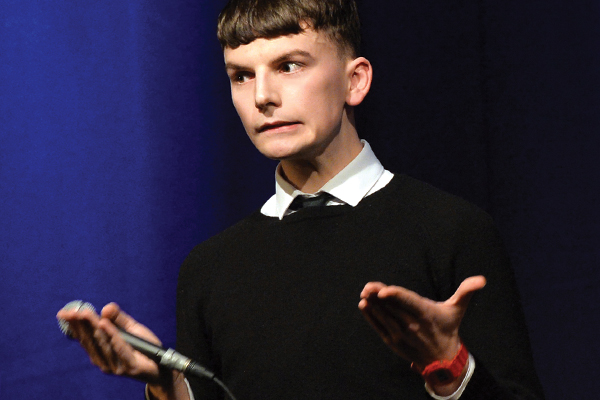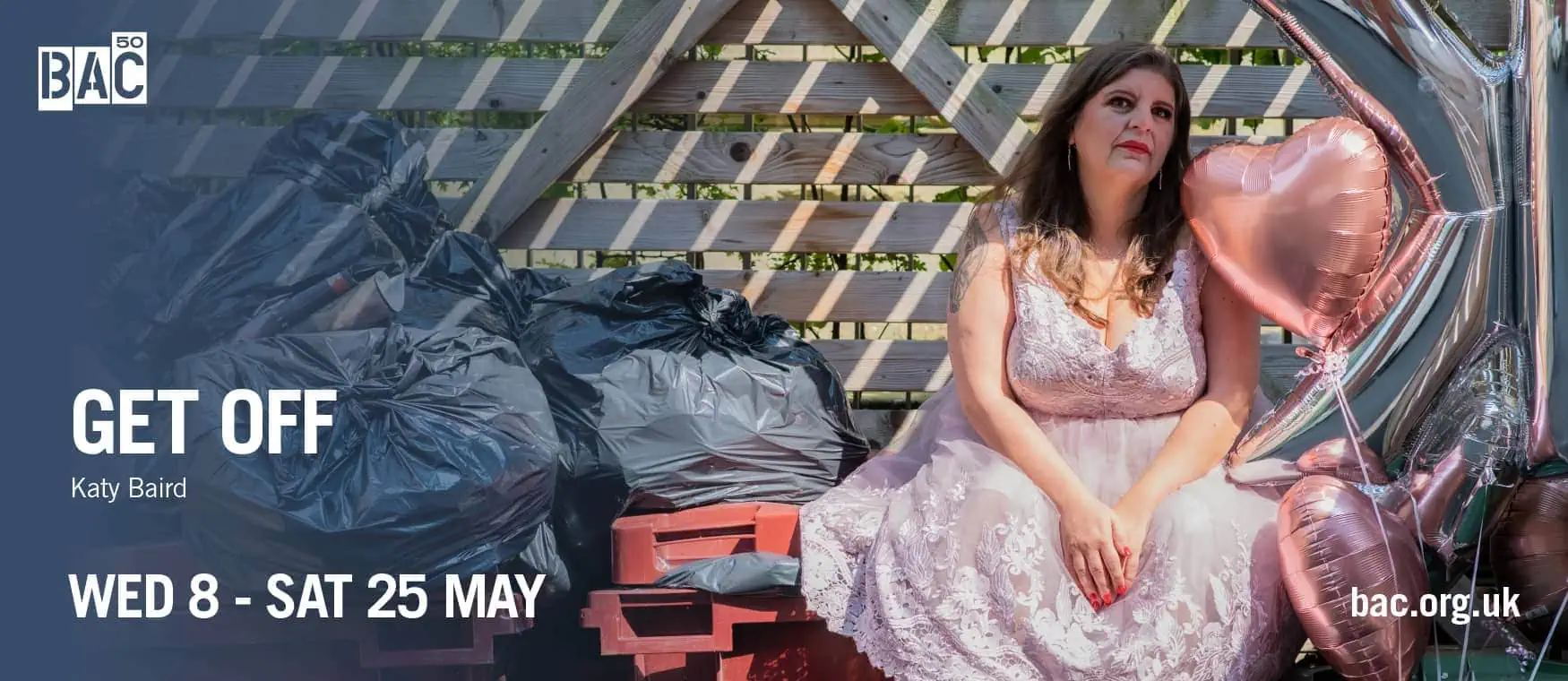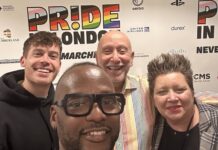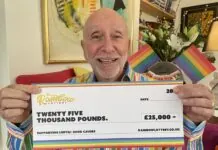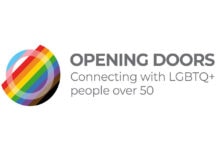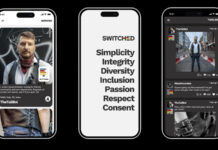Stand-up can feel like a less accepting space for queer comedians compared to cabaret and performance art. But this year’s fringe festivals saw a wave of comics open up discussions about the LGBT experience to rave reviews. Comedian Joe Sutherland looks into the growing acceptance of queer comedy.
The British public has long welcomed gay comedians into the mainstream. Personalities such as Graham Norton, Sue Perkins, Lily Savage, and HRH Stephen Fry, can attest to that. Such success can often come at the cost of being pigeonholed though, often labeled with the prefixed title of ‘gay-comedian’ as opposed to just ‘comedian’. But this year’s fringe festivals saw a multitude of acts from across the LGBT spectrum break free from any such light-entertainment niche. Shut that door! The queer class of 2015 is not asking for acceptance, they’re demanding to be heard.
At this year’s Edinburgh Fringe, Joe Lycett, Mae Martin and others presented sublime, hilarious shows, which dissected how those of us in the LGBT community are objectively labelled and the frustrations that entails. They successfully mined their queer experience to find gags that relate to a universal audience without relying on tired stereotypes. After all, gayness doesn’t have to be the butt of every joke. Lol… ‘butt’.
As this has truly been a year to be queer, it’s no surprise that LGBT topics have come to the fore in stand-up. Equal marriage is a must-have for any country that’s truly on-trend and these days you can’t even enter a reputable newsagent without seeing millionaire trans women on magazine covers, placed in view of the nation’s children. We’re everywhere!
LGBT rights, particularly marriage equality, are such a hot topic that Australian comedian Tom Ballard has predicted, for straight and gay stand-ups alike, the subject might soon be considered as hack as airplane food. He calls on comics of all creeds to ditch the sweeping generalisations of queer people and the cheap bumming innuendos dressed up as endorsements of gay rights. As something of a rose-budding comedian myself, I too hope to avoid such crass material and start joking from the heart, or rather, gagging on life.
So if we’re preaching to the converted in our cushty western world of light entertainment, is there anything left for LGBT comics to fight for?
The default setting for most audiences is now seemingly ‘not homophobic’. But the worry is that in this new age of Tory-sanctioned tolerance, acceptance is only granted to those who assimilate; registering at John Lewis for ‘Hers & Hers’ towel sets or playing the polite part of ‘Gay Best Friend’. It would be a shame to see audacious queer rebellion die out, especially in mainstream entertainment. Did Julian Clary talc his way into latex lederhosen for nothing? He and other acts of the eighties and nineties bravely, aggressively explored the comic potential of queerness and served it up to the masses. Here’s hoping we build on that and don’t regress.
The language used to describe queer comics can still be restrictive, too. Talented performers such as Simon Amstell or Stephen K Amos are often described as great comedians who ‘happen’ to be gay. US comedian Jeff Jones “isn’t a GAY comedian; he’s a comedian who just HAPPENS to be gay”; so reads a bio on the website of a Florida comedy club he headlined in October this year. It’s astounding that in the year of our Lady, 2015, they’re naively trying to reassure crowds with ‘hey guys, he’s just like you…except for all the deviance!’
This is why it’s so refreshing that there’s a new crop of acts avoiding any straight-acting cover-up and simply being themselves.
Mae Martin’s show ‘Us’ is one such example of a brilliant hour of charming, wacky and nigh-impossibly funny stand-up, which queries how we are labelled by others and ushered into playing stereotypes of our gender or sexuality. No preaching, no patronising; Martin’s show is packed with killer jokes that leave no-one behind and allows everyone to ask: who defines us?
Similarly, in his sell-out show ‘That’s the way A-Ha A-Ha, Joe Lycett’, the eponymous BBC regular is refreshingly open when touching on the fluidity of sexuality, using his own self-assurance to cripplingly cruel and hilarious effect in a story about teasing an ‘alpha lad’ on a stag do.
He first began cracking jokes on the subject of his bisexuality as a means of managing audience expectations, particularly when introducing himself on stage. “You’re trying to second guess what judgements an audience are going to make about you, and if you’re a bit camp, naturally sexuality is something to play with,” he says. As such, he felt he raised the subject on stage “more out of necessity than from any particular desire to discuss it.” Doing so has allowed him to speak about it openly and happily in other situations.
“As this has truly been a year to be queer, it’s no surprise that LGBT topics have come to the fore in stand-up.”
Lycett feels the value of talking about it publicly is threefold: “being visible for those people who aren’t out or are a bit unsure of their sexuality…to explain non-cis sexualities to standard audiences who maybe haven’t thought about it before… and to take the piss out of it for comic effect.”
The British public may love a camp man, but they’ll famously prickle should he mention sex. But Lycett is confident that this is not a latent homophobia. “[UK audiences] don’t want to hear too much about anyone having sex, regardless of gender or sexuality,” he says. “Also, in order for a joke or routine to work it needs to be relatable and so going into the intricacies of gay sex with an audience simply may not work because most people haven’t had gay sex.”
Stephen Bailey manages to talk about his sex-life, love-life and family-life to widespread audiences and relate with them all. The self-styled ‘people’s princess’ is nothing but honest on stage. His affable camp nature is totally him, not an affectation. “I was always that kid where everyone knew that I was going to be gay” he says, when contemplating why he feels that such ‘mainstream’ audiences relate to him. “Everyone has that kid, nephew, friend’s son…and so I wonder if they see that [in me]”.
The dream is that we one day reach a point where a performer’s gender, sexuality and race perhaps won’t even need mentioning, but equally could be mined for jokes without risk of the performer alienating their audience or being typecast.
“But the worry is that in this new age of Tory-sanctioned tolerance, acceptance is only granted to those who assimilate; registering at John Lewis for ‘Hers & Hers’ towel sets or playing the polite part of ‘Gay Best Friend’.”
Sarah Franken, the talented and admired character comedian, previously known as Will Franken, the talented and admired character comedian, recently came out as transgender, after 15 years on the international circuit. She is one such performer who strives to ensure that the last thing she is seen as is ‘a minority’.
“My transgenderism is incidental”, she says. It doesn’t mean she avoids the subject on stage, rather, like Lycett, it’s been a necessity to break the ice with an audience. “The first 20 minutes of my show this year dealt with it…then I was on to the most blasphemous stuff about ISIS”. Yet it seems that not avoiding the subject of realising her identity has been quite liberating. “It gave the show a bit more of a theme: I’m free to be who I want and criticise who I want,” she says.
So do any of these performers feel a sense of responsibility as ambassadors to the LGBTQI community, or is it every man for herself? Lycett’s response says it all: “sexuality is so nuanced and personal that it would be naive to assume [we] can accurately articulate the experience of others. If I can help people by being visible, excellent, but I’m in it for the jokes, the money and the hoes.”
Can I get an amen?

